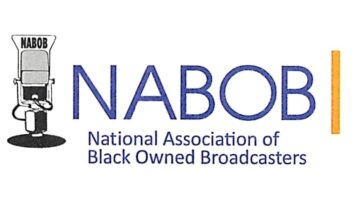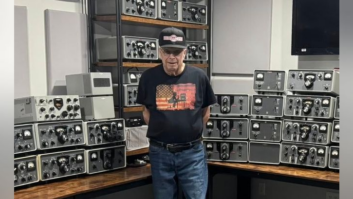BRUSSELS — Less than a month after Dominique Derwa presented Kollector at the World Copyright Summit in Brussels, the innovative airplay-tracking system is monitoring more than 1,500 stations in 52 countries worldwide. The latest additions to the Kollector database include some 40 German and 60 Latin American stations.
The idea for Kollector was launched by co-founders Derwa and recording studio owner Pascal Flamme; in December last year, the two founded the company and started doing research on the radio airplay tracking.
AUTHOR’S RIGHTS

Kollector Co-Founders Dominique Derwa and Pascal Flamme
“We wanted to establish a real-time, online system allowing artists, producers, publishers and record companies to see where their music is played on radio,” said Derwa.
“All the people involved in the music industry are doing tremendous jobs in creating music and developing business. The collecting societies gather data to administer author’s rights — and radio airplay is a substantial element here.”
Derwa claims that most collecting societies suffer from lack of transparency and that much of their data is hazy and at least 18 months old.
“With Kollector we are filling in the gaps, offering artists and performers exact information about the airplay of their work. Managers and record company promotion staffers can follow the results of their artists step-by-step and worldwide and adjust retail distribution on that basis. Finally, the full information about the broadcast of the songs is available, internationally, to the collecting society, in real time,” he said.
The key element of Kollector is a self-developed algorithm that continuously matches an extensive track database with the output of radio stations worldwide — the data is displayed in real-time on the client’s computer.
“Availability of songs in our database is essential,” said Flamme. “Kollector is a track-driven tool — if we don’t have the song in our database, we cannot follow it. But today, after a few months of beta-testing and the presentation at the Copyright Summit, we see that more and more artists and record companies are entering titles into the system.”
Flamme said that Kollector’s goal for the remainder of 2011 is “to make people aware of the strong points of the system, and how they can monitor their own property.”
The first reactions after the Brussels presentation in front of a panel of copyright specialists were tremendous, said Derwa, and since then, Kollector has added 40 German stations and 50 Spanish ones to its roster — a German-language version of the Kollector site will be available soon.
“We’ve been talking to record company executives and author’s rights societies, presenting the demo version of Kollector,” said Derwa. “They all agree that our system is a new trend benefiting artists, rights holders and record labels.”
TEST CASE
After a demonstration of Kollector, Universal Music Belgium decided to submit a number of track titles as a test case for the new system.
“With the Nielsen Music Control system we are provided weekly lists of most-played songs on the radio in Belgium, with separate data for Flanders, Wallonia and the whole country, compiled as an airplay chart,” said Patrick Guns, marketing and sales director with Universal Music Belgium.
“With Jessie J, we have a new signing with cross-border potential and already a number-one airplay hit [‘Price Tag’] under the belt and a new single, ‘Nobody’s Perfect,’ just out; this is an interesting artist to follow the international airplay,” said Guns.
“And it works. Kollector allows us to see exactly when, for example, Q-Music in Holland gave “Price Tag” a spin, or when NRJ France played LMFAO’s ‘Party Rock Anthem,’ another Universal release.”
Guns said the system, with accurate airplay data, allows Universal music to prepare promotion campaigns. For example, if a specific track is gaining airplay on a number of stations in France, where many Belgians spend their summer holidays, a label may decide to push the song to Belgian stations too.
“But too much information could be a disadvantage,” said Guns. “When a single station in Australia, for example, is playing one of our tracks, we may decide not to base a promotion campaign on this. On the other hand, with Universal Music’s vast back catalogue, we now see that so-called mainstream hit-radio stations were playing quite a lot of Bon Jovi’s older songs ahead of the band’s concert here in July. A bit of preparation and homework for radio promo people could bring great results with the Kollector information.”
‘GREAT TOOL’

Selah Sue is one of the artists whose management company is trialling Kollector.
Christoffel Cocquyt of Gentle Management is the manager of Warner Music Benelux recording artist Selah Sue. He was invited for a beta-test of the system three months ago and submitted some 100 songs to Kollector.
“It is a great tool, especially when domestic artists go abroad,” said Cocquyt. “Selah Sue’s eponymously titled album certified for double platinum here and is charting in France, the Netherlands and Italy. It’s a pan-European release and Kollector is providing us with adequate data on airplay action.”
Cocquyt gathers that rights administration may have been Derwa and Flamme’s initial goal, but he’s convinced that Kollector holds more advantages for artists, labels and managers.
“Selah Sue played shows in Munich and Berlin last week, and the results started dropping in right after. What you see is correct information and that’s what counts,” he said. “The Kollector data also put the concept of ‘rotation’ in a different perspective, when the number of plays will be available to label promo people.”
Kollector could also help fine-tuning promotion efforts.
Cocquyt cites the example where, during summer festivals, radio stations apply for backstage interviews. With Kollector, managers can establish a true profile of a station before approving an interview.
“The one thing I’d love to see with Kollector is that, whereas today we can follow singles airplay worldwide, it would be interesting to view an overall profile of an artist: Where are they playing Selah Sue’s singles? That would be great,” he said.
FOR RADIO
At press time, radio stations were not trialling Kollector, but Derwa said that, once the database contains sufficient titles, the system could ease administration of airplay reporting. Kollector could generate airplay listings automatically to provide to performance rights collection societies.
Johan Notenbaert, head of music at Q-Music and JOEfm said that currently the airplay listings are generated from their Dalet 5.1 playout system and those logs are forwarded to Sabam, the Belgian author’s rights society, weekly. “We have an airplay ranking list, but only for internal use,” Notenbaert said.
Currently, Kollector is offering a free demo version of the system via its website; Derwa wants to launch a commercial version by year-end.
“Our final marketing strategy is in full development, but the idea is that we will charge credits for each song clients want to follow. The more credits clients buy, the cheaper they come and the more songs are monitored worldwide,” he said.







